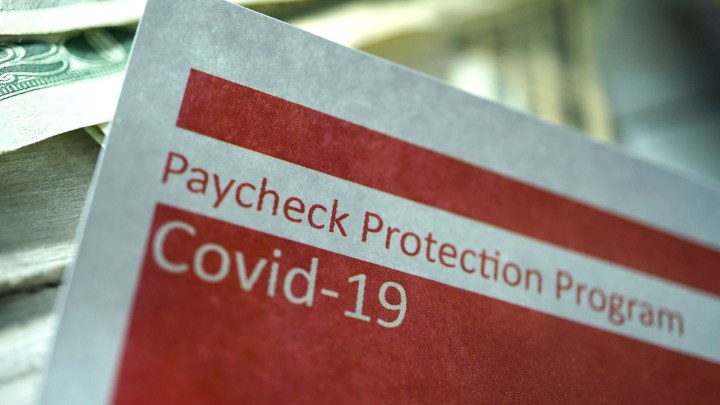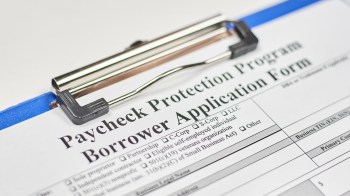
Who got PPP loans? Trump administration releases the data.
Who got PPP loans? Trump administration releases the data.

The Paycheck Protection Program loans — forgivable if workers stay on payrolls — were supposed to save small and mid-sized businesses, and along with them, jobs.
According to newly released data on who got loans worth $150,000 or more, the program worked: Money was spread around widely, to everything from health care companies to construction, manufacturing and religious organizations.
But the loans also went to some enterprises that are once again prompting questions about who really needed the government aid.
Marketplace’s Nova Safo has the details. The following is an edited transcript of his conversation with Marketplace’s Sabri Ben-Achour.
Sabri Ben-Achour: So who got loans that people might be raising questions about this morning?
Nova Safo: Probably the highest-profile name is Kanye West. His clothing company got millions in PPP loans. We don’t know the exact amount — it’s categorized as between $2 million and $5 million. The reason we’re learning about this now is that the Treasury Department and Small Business Administration, under pressure, released data for who got the biggest loans.
Among the recipients listed: expensive private schools, big restaurant chains, lobbying and investment firms and law practices, including one that represented President Donald Trump. Some megachurches got millions of dollars.
Less than 15% of recipients requested loans worth more than $150,000, but this group accounted for the vast majority of the money that was dispersed by the Small Business Administration.
Ben-Achour: I remember a few weeks ago we were talking about some big restaurant chains taking PPP loans, so are these revelations a surprise?
Safo: They’re confirming some of the criticisms about the PPP program, that money was flowing to bigger businesses than perhaps Congress intended.
The issue is that the program was supposed to be for firms that didn’t have other options for quickly raising cash to continue paying employees and staying in business.
We spoke with Sarah Crozier of the Main Street Alliance, which is an advocacy group for small business:
“To see that the most well-banked businesses are best represented in getting that money and ultimately, maybe didn’t need it as much as other businesses, particularly in the service industries — I can see where that outrage has been justified.”
Crozier told us that what her group now wants is for Congress to target aid, for example, geographically to small businesses in infection hot spots, where the aid may be most needed.
There’s a lot happening in the world. Through it all, Marketplace is here for you.
You rely on Marketplace to break down the world’s events and tell you how it affects you in a fact-based, approachable way. We rely on your financial support to keep making that possible.
Your donation today powers the independent journalism that you rely on. For just $5/month, you can help sustain Marketplace so we can keep reporting on the things that matter to you.


















